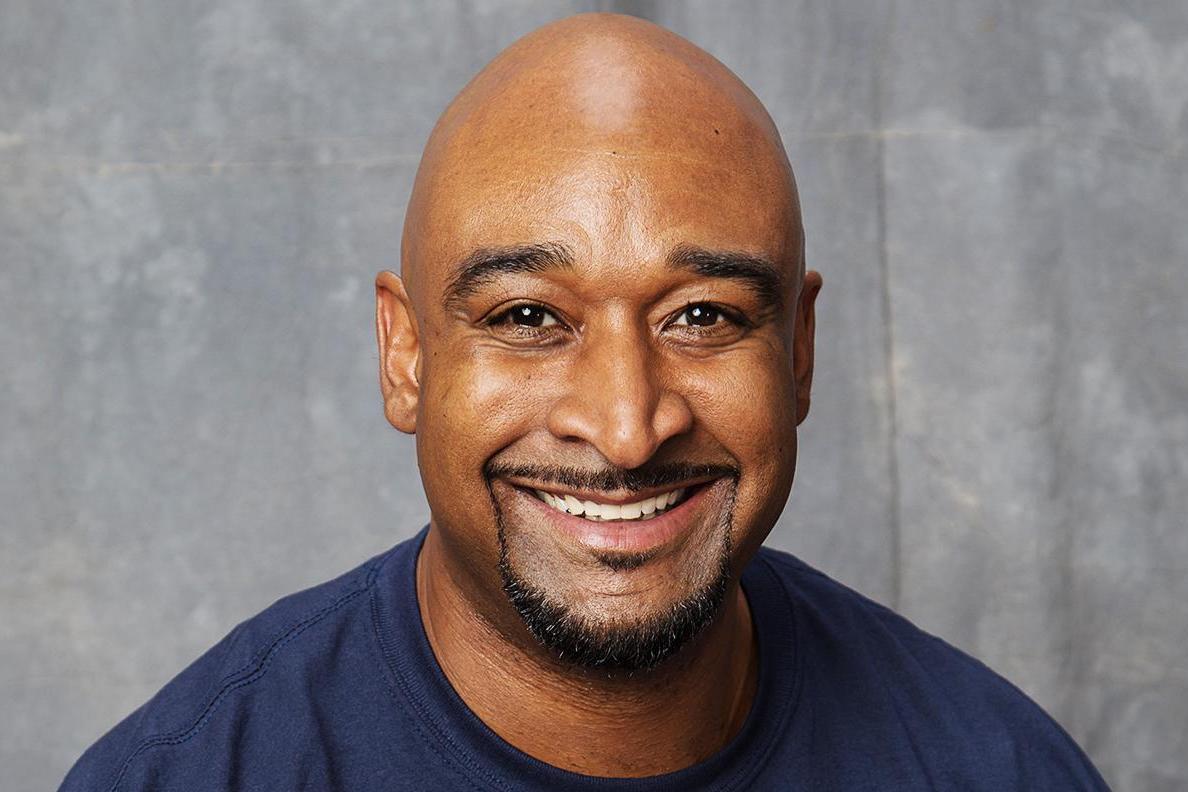GunBail: Former convict Trevor Brooks believes his app can solve US gun crime crisis
Now a free man again after two decades behind bars, Brooks believes he has the solution to the city’s deepening homicide crisis: an app that exchanges guns for bail

Your support helps us to tell the story
From reproductive rights to climate change to Big Tech, The Independent is on the ground when the story is developing. Whether it's investigating the financials of Elon Musk's pro-Trump PAC or producing our latest documentary, 'The A Word', which shines a light on the American women fighting for reproductive rights, we know how important it is to parse out the facts from the messaging.
At such a critical moment in US history, we need reporters on the ground. Your donation allows us to keep sending journalists to speak to both sides of the story.
The Independent is trusted by Americans across the entire political spectrum. And unlike many other quality news outlets, we choose not to lock Americans out of our reporting and analysis with paywalls. We believe quality journalism should be available to everyone, paid for by those who can afford it.
Your support makes all the difference.Trevor Brooks was convicted of second degree homicide in 1993, aged 24. A street altercation, he says, ended with a gun going off in his hands, killing his friend.
In the dispassionate world of criminal statistics, it was simply chalked up as one of 353 killings in Baltimore that year, a record for the city at the time.
Now a free man again after two decades behind bars, Brooks believes he has the solution to the city’s deepening homicide crisis: an app that exchanges guns for bail.
GunBail, as it’s called, works around Brooks’ assertion that there is an intersection between those who cannot afford bail and those who have access to illegal firearms. In sum, the app offers to exchange weapons in return for a reduction in bail money.
Its aim is to tackle what Brooks, 46, describes as Baltimore’s “culture of violence”, something with which he is all too familiar.
“It is the battery that drives me,” he says of his murder conviction that robbed almost half his life as a free man.
“The two of us were friends and neither one of us meant to hurt each other, yet someone ended up dead and that was because of the proliferation of guns in our community. A lot of my friends have lost their lives because of that.”
He is not alone. The Baltimore Sun, Maryland’s largest general-circulation daily newspaper, has tracked the city’s crime data over the course of several decades. According to their figures, at the time of Brooks’ conviction in 1993, Baltimore was experiencing its most murderous year to date. In 2017, just as Brooks prepares to pilot his new app in partnership with Baltimore City Council, the newspaper’s data suggests the city is on track to top that. It suffered 146 homicides up until the end of May, surpassing 1993’s five-month toll of 139, the worst per capita ratio in the US.
A whole raft of initiatives have been trialled to combat the issue. Most have failed and the city is desperate.
In May, the City Council took up a resolution that would lend support to Brooks’ idea, which he believes could see hundreds of guns taken off the streets every day.
To surrender a gun via the app, a nonviolent inmate’s family takes a picture of the gun that’s in their possession and sends it to GunBail. GunBail then mails a box and gun lock to them so that they can send the firearm to GunBail. GunBail subsequently arranges for the weapon to be handed over to authorities. The sticking point is getting the courts to agree to release the inmate on their own recognisance.
The gun effectively becomes a sort of substitute for bail, so could particularly appeal to families who can’t afford to pay.
Authorities have trialled gun buybacks in the past, often recovering hundreds of guns in a single day. But Brooks says that such events have failed to attract people who are likely to commit gun crimes or retrieve weapons typically used to perpertrate them. He believes his idea targets people who are more likely to be tied up in gun violence while providing a secure method of recovery.
As well as having the backing of the City Council, GunBail raised over $40,000 in the first few days of a recent crowdfunding campaign on online platform IndieGogo, but there is much still to be done.
Brooks will need the backing of the city’s law enforcement authorities and, although he has met with prosecutors, a spokeswoman for the state’s attorney told the Baltimore Sun that the programme required “more development from a legal standpoint”.
Having attended various accelerators for underserved entrepreneurs, Brooks is convinced that, if given the green light, he can license the software across the US and, eventually, worldwide.
“We have to start somewhere,” he says. “Because one thing is clear: everything else that has been tried, has not worked.”
Join our commenting forum
Join thought-provoking conversations, follow other Independent readers and see their replies
Comments